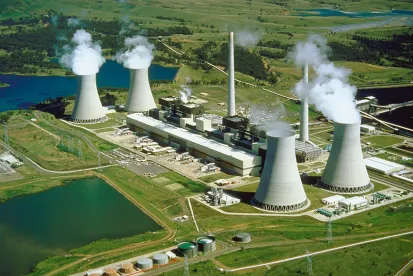The Nuclear Regulatory Commission (NRC) recently put the final nail in the coffin of a nearly 10-year proposed rulemaking effort that would have required licensees to remediate residual radioactivity resulting from licensed activities during facility operation, rather than at license termination as required by the current rules. The effort began when the commission approved the proposed decommissioning planning rule (DPR) in 2007. At that time, the commission was concerned that there could be “legacy” sites that could not complete complex remediation efforts due to inadequate financial or technical reasons, and that these sites would require the government to shoulder the burden to maintain and restrict access—and presumably complete site remediation. The proposed solution was to require remediation essentially as-you-go and thereby reduce the likelihood that any current operating facility would become a legacy site.
But the final DPR, which went into effect in December 2012, requires licensees to conduct their operations to minimize the introduction of residual radioactivity into the site, including subsurface soil and groundwater. The DPR does not mandate that licensees remediate during plant operations. Instead, the NRC allows a licensee either to conduct immediate remediation or to ensure there are sufficient funds to conduct remediation at a later time, usually during decommissioning.
During this proposed rulemaking effort, the NRC held a series of public meetings to obtain stakeholder comments. The NRC staff also analyzed licensee compliance with the DPR to determine whether compliance has been adequate to prevent future legacy sites. The NRC published its findings in 2016 and concluded the following:
-
The DPR requires timely adjustments to decommissioning financial instruments to ensure that adequate funding will be available after facility shutdown to remediate any residual radioactivity. These requirements sufficiently mitigate the potential that residual contamination unaccounted for in a licensee’s decommissioning funding would lead to future legacy sites.
-
In some circumstances, mandated remediation during plant operations could adversely affect operational safety because certain locations may only be safely accessed after plant operations ceased.
-
Groundwater resources are protected by effective groundwater monitoring programs and industry initiatives that help to promptly identify significant abnormal radioactivity releases.
-
Residual radioactivity to date has been limited mostly to onsite areas, and there has not been a significant impact on public health and safety. Under current regulations, this is unlikely to change.
Based on the NRC staff’s conclusions, the commission determined that compliance with current regulations adequately protects public health and safety, and significantly reduces the potential for additional legacy sites. Accordingly, the “prompt remediation” rulemaking effort was officially discontinued.
The commission’s decision is an important recognition that the existing rules on decommissioning funding are working as intended to ensure public health and safety. It also avoids a potentially significant and unnecessary financial burden on already-challenged nuclear plant operators. But as seen from recent challenges to certain decommissioning transactions, adequate financial assurance related to residual radioactivity, among other things, will continue to be a hot button decommissioning issue.



 />i
/>i

